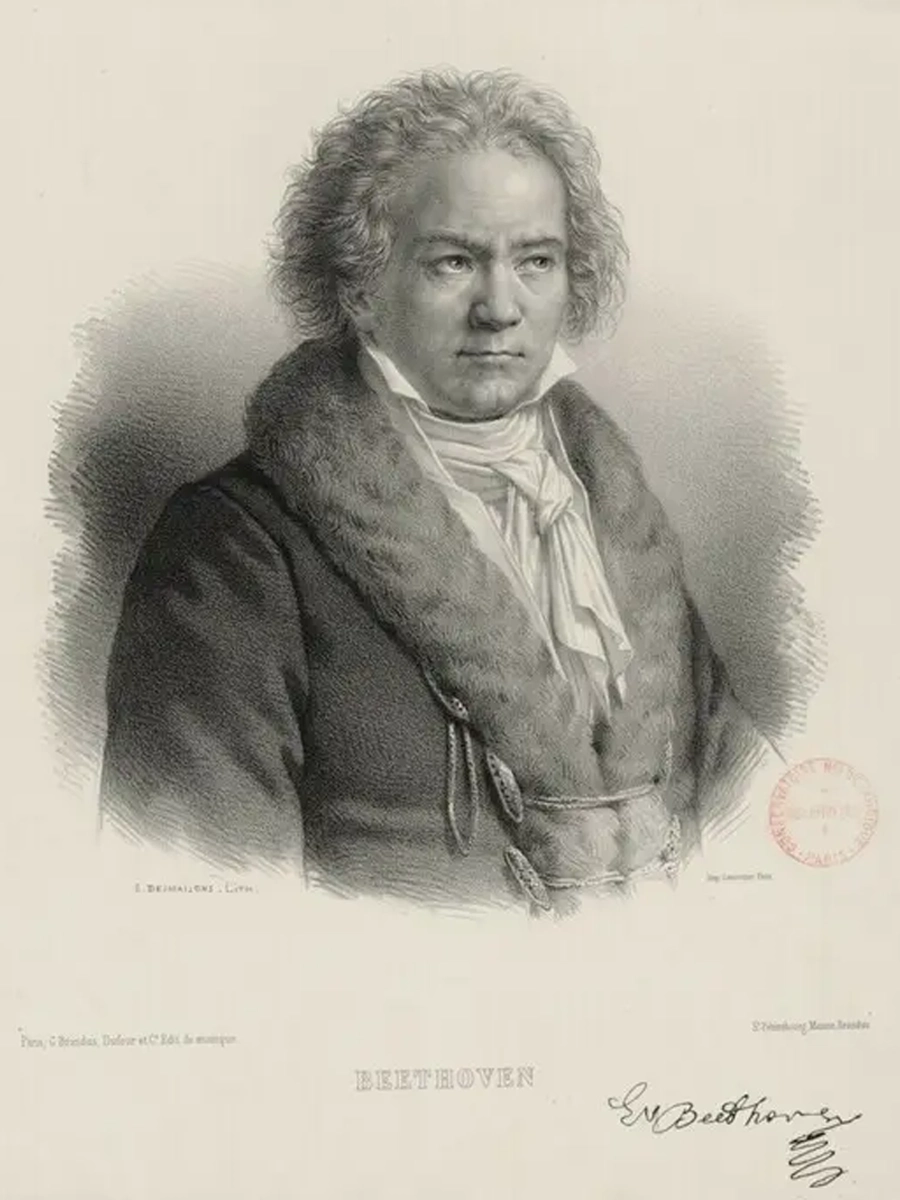Ludwig van Beethoven – Resources
Ludwig van Beethoven holds a central place in the history of European music. Through the scale of his symphonies, the evolution he brought to the sonata form, and the expressive power of his writing, he shaped the transition from Classicism to Romanticism and left a lasting influence on Western musical culture.
At the beginning of the 19th century, however, Beethoven faced a major challenge: a progressive loss of hearing. The first symptoms are documented around 1798. They intensified rapidly, leading him in 1802 to write the ↗ Heiligenstadt Testament , a deeply personal document in which he expresses his anxiety and isolation as his condition worsened.
Despite the progression of his deafness, which became almost complete during the 1810s, Beethoven continued to compose and produced some of his most ambitious works, including the Ninth Symphony and the late string quartets. Scholars note that this period reveals a transformation in his musical language: stronger contrasts, heightened dramatic tension, and an exploration of an inner sound architecture that transcended physical hearing.










